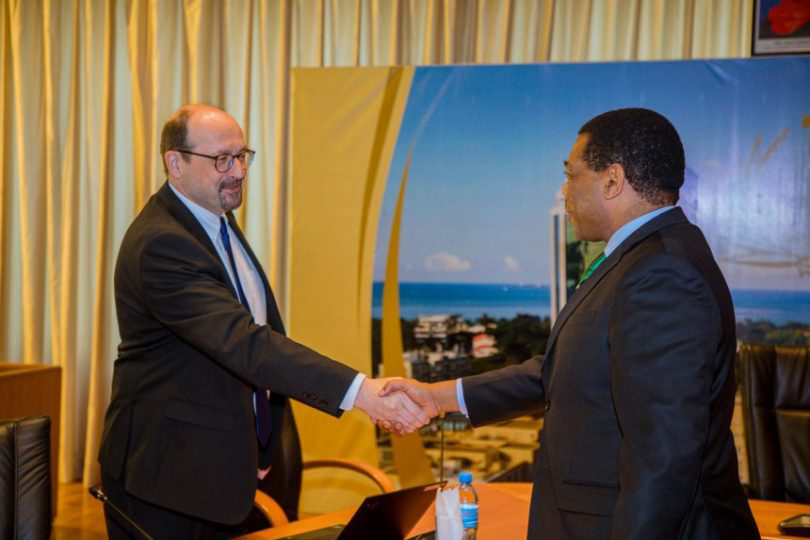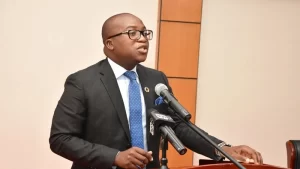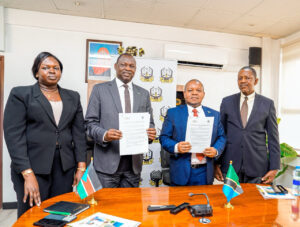By The Business Insider Reporter
Government has made firm commitment before the International Monetary Fund (IMF) that it will continue to improve its policies and plans by prioritising key economic and social sectors, while also strengthening the private sector.
The commitment was given recently by the Minister for Finance, Dr. Mwigulu Nchemba, during the closing session of consultations between the Government and a team of experts from IMF, following the conclusion of the fifth review of the implementation of the Extended Credit Facility (ECF) programme.
This programme offers concessional loans aimed at boosting the national economy through productive sectors and social services, alongside the second phase of the Resilience and Sustainability Facility (RSF) programme, which helps address climate change-related impacts.
Closing the session at a wrap-up meeting held at the Bank of Tanzania (BoT) headquarters in Dar es Salaam, Dr. Nchemba expressed his satisfaction with the report presented by the IMF team leader, Mr. Nicolas Blancher. The report shows that Tanzania has satisfactorily met the benchmarks set under both the ECF and RSF programmes.
Dr. Nchemba pledged that the government would continue to effectively oversee the implementation of these two programmes, which are worth a combined total of US$1.832 billion.
Of this, US$1.1 billion supports economic strengthening through productive sectors, while US$786 million is allocated for the climate resilience programme.
Both programmes are being implemented over a four-year period from 2022/2023 to 2025/2026.
For his part, the IMF mission leader, Mr. Blancher, stated that the fifth review had shown that Tanzania has made good progress in implementing the ECF and RSF programmes.
He recommended that further efforts should be made to enhance the delivery of social services and continue improving the business and investment climate.
“The economic outlook for Tanzania is positive, with sustained strong growth, low inflation, a narrowing trade deficit, and improved foreign exchange reserves,” said Mr. Blancher.
He added that measures to better align government revenues and expenditures in the 2025/26 financial year would help preserve debt sustainability while safeguarding priority social spending.
Mr. Blancher further noted that continued implementation of climate change adaptation policies, supported under the RSF, would help to build resilience in addressing the effects of climate change.
He stated that the review’s recommendations would be submitted to the IMF Executive Board, and that the Board’s decision would pave the way for Tanzania to receive funding amounting to US$441 million.
Tanzania underwent this fifth review in order to access IMF funds to implement various economic and social development projects. To date, the ECF programme has disbursed US$754.3 million out of the US$1.1 billion allocated, while an additional US$55 million has been disbursed through the RSF window – part of the US$786 million committed to the project.
The session was also attended by the Permanent Secretary in the Ministry of Finance, Dr. Natu Mwamba; the BoT Governor, Mr Emmanuel Tutuba; Deputy Governors; senior government officials; and members of the IMF review mission.









